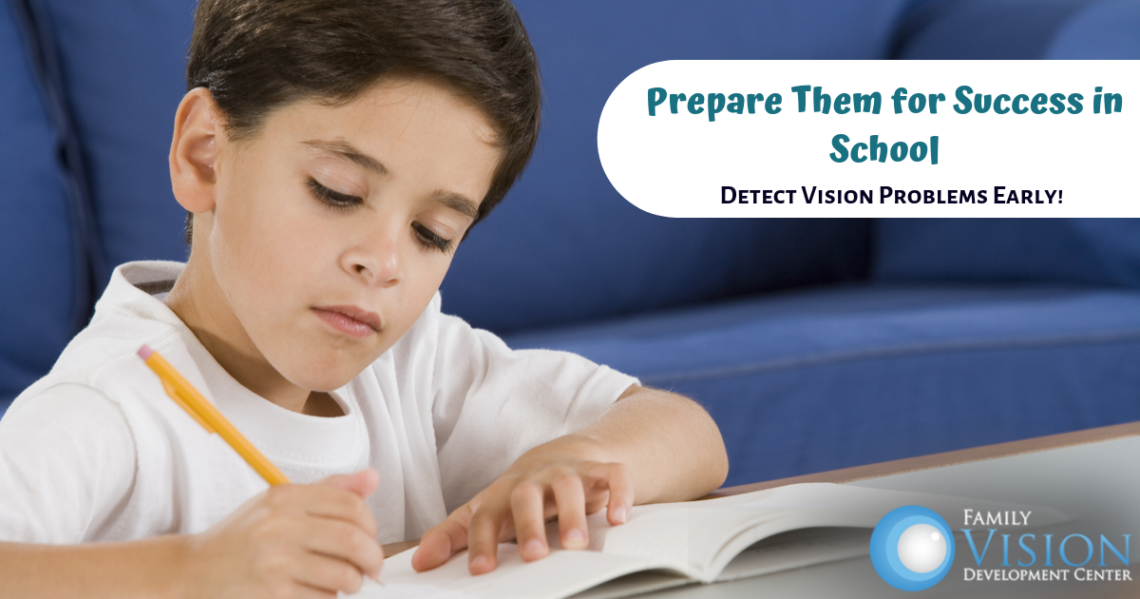When a child has vision problems, it can affect many areas of their daily life, including their learning ability. And it may not be as evident as blurred vision – a child could have perfectly clear eyesight, but still have vision issues that can prevent them from achieving success in school.
Types of Vision Problems
There are several types of vision problems, all of which can affect your child’s ability to read, write and succeed in the classroom in different ways. The following are some common vision problems in children that may interfere with learning ability.
- Refractive Errors
Children with a refractive error have an irregularly shaped cornea that does not bend light properly. This can cause blurred vision, difficulty reading things up close or a crossing of the eyes. If your child holds a book very close to their eyes or squints when trying to read or see the front of the classroom, they may be suffering from a refractive vision problem.
- Functional Vision Problems
These refer to problems affecting the way that the eyes and brain work together. This can lead to problems in eye teaming (binocularity), accommodation (i.e., the ability of the eye to focus on an object at different distances), hand-eye coordination, peripheral vision or fine eye movements. A child with a functional vision problem may experience double vision, transposing letters, confusing similar words, difficulty with reading, spelling and math, and poor performance in sports.
- Perceptual Vision Problems
Perceptual vision problems are characterized by difficulty understanding and identifying what one sees. A child with poor visual perception may have 20/20 vision, but might have trouble distinguishing between two similar letters (such as u and n), putting a puzzle together or finding a pair of matching socks in a drawer. Other signs of a visual perception disorder could include skipping words or lines when reading, memorization trouble, or understanding a map.
While parents may be quick to assume that their child’s learning ability is determined by their study habits, or even genetics, they may not even think to look at their vision. A comprehensive eye exam at Family Vision Development Center can uncover any vision conditions or disorders that can lead to poor performance in school. Vision therapy programs are a very effective way to treat these types of vision conditions, and early detection often provides more opportunity for treatment options. Contact us today at 630-862-2020 or visit us online to schedule an appointment.

